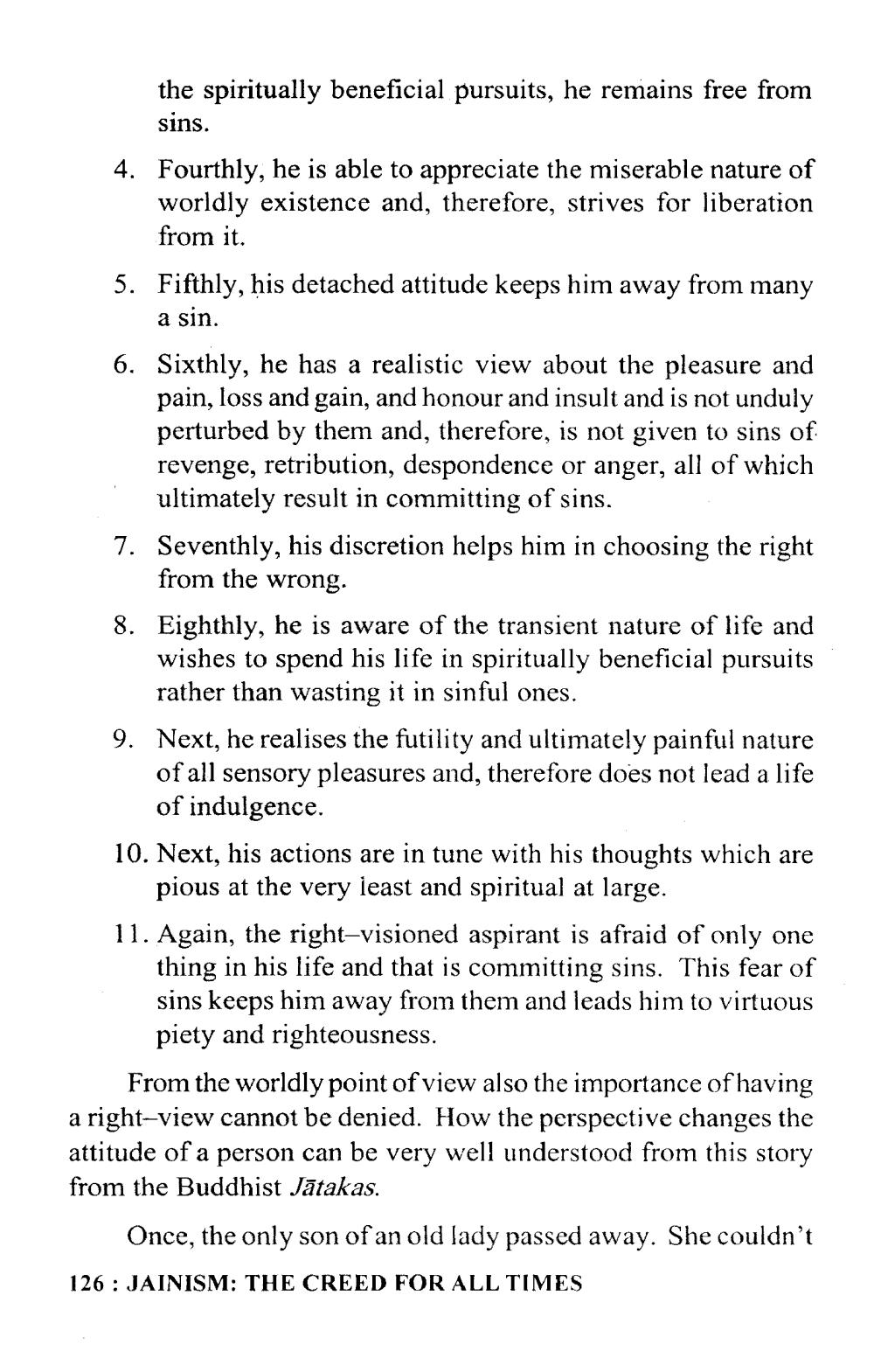________________
the spiritually beneficial pursuits, he remains free from sins.
4. Fourthly, he is able to appreciate the miserable nature of worldly existence and, therefore, strives for liberation from it.
5. Fifthly, his detached attitude keeps him away from many a sin.
6. Sixthly, he has a realistic view about the pleasure and pain, loss and gain, and honour and insult and is not unduly perturbed by them and, therefore, is not given to sins of revenge, retribution, despondence or anger, all of which ultimately result in committing of sins.
7. Seventhly, his discretion helps him in choosing the right from the wrong.
8. Eighthly, he is aware of the transient nature of life and wishes to spend his life in spiritually beneficial pursuits rather than wasting it in sinful ones.
9. Next, he realises the futility and ultimately painful nature of all sensory pleasures and, therefore does not lead a life of indulgence.
10. Next, his actions are in tune with his thoughts which are pious at the very least and spiritual at large.
11. Again, the right-visioned aspirant is afraid of only one thing in his life and that is committing sins. This fear of sins keeps him away from them and leads him to virtuous piety and righteousness.
From the worldly point of view also the importance of having a right-view cannot be denied. How the perspective changes the attitude of a person can be very well understood from this story from the Buddhist Jātakas.
Once, the only son of an old lady passed away. She couldn't
126 JAINISM: THE CREED FOR ALL TIMES




